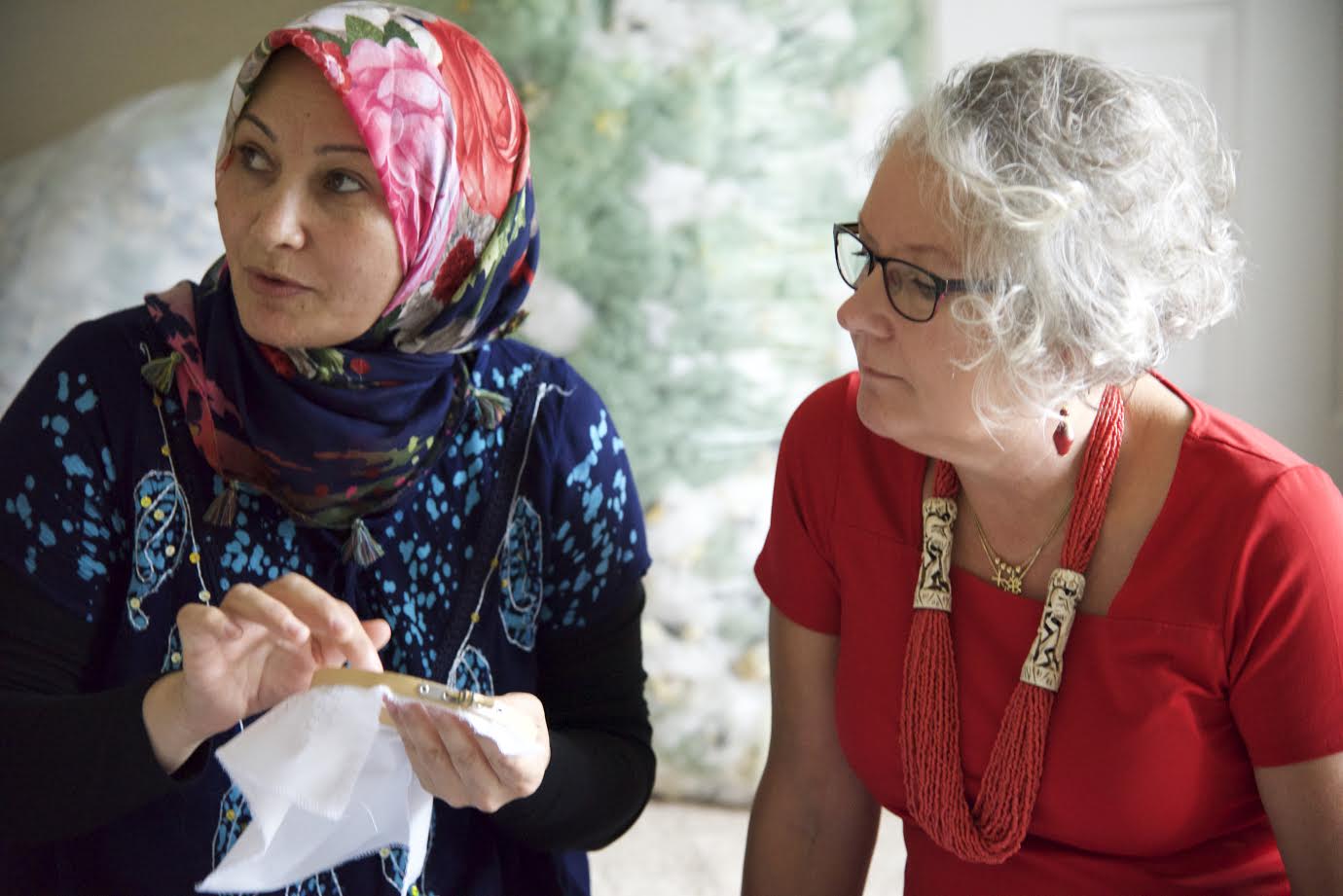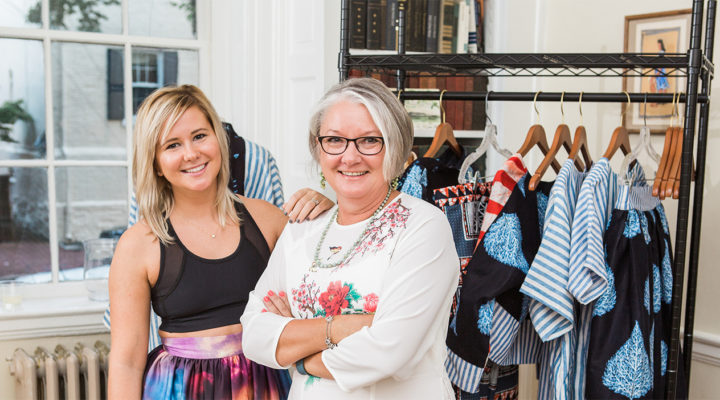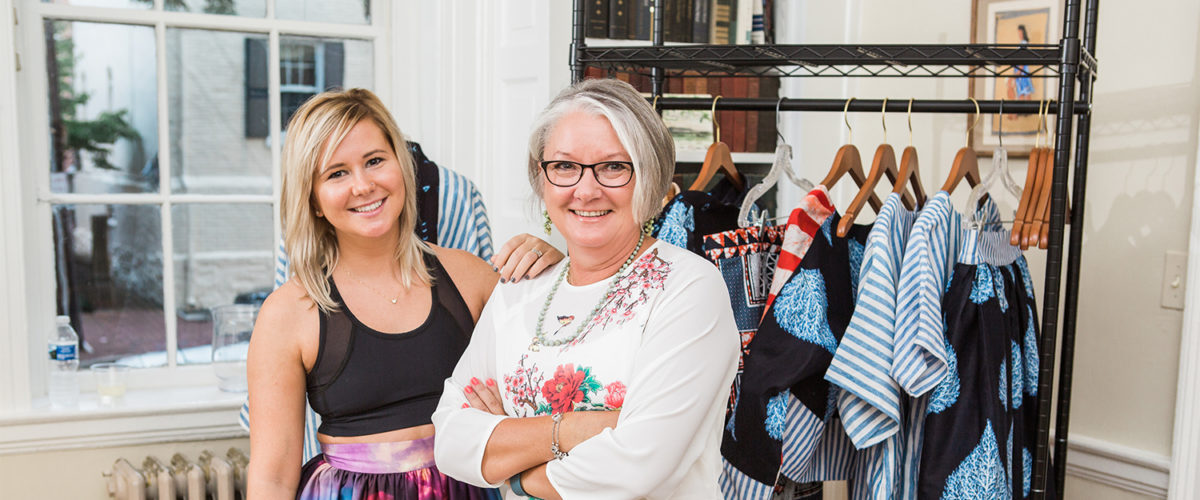There are the kinds of missionaries who translate the Bible into exotic languages, who hold revivals on faraway continents and who provide medical care and food for earthquake victims.
And then there are the kind who launch and run businesses designed to make a positive difference in the world.
Nell Green, Texas-based field personnel with the Cooperative Baptist Fellowship, has become one of the latter.
“It’s not normal missionary stuff but it’s just a terrible amount of fun,” Green said about the new women’s clothing company she and her daughter, Christen Kinard, are in the process of launching.
“There is something new all the time,” she said about the process of developing business plans, locating production space and purchasing industrial equipment for Threads by Nomad. “I am learning how to do business-as-mission – I would say business as purpose.”
The business model calls for hiring refugees at wages well above minimum wage to create original fashion lines of clothing using fabrics from around the world — including Africa, Thailand, Togo and other locations.
“Our goal is to celebrate diversity and help the average woman here in the United States … to connect with other cultures and to connect with the beauty of diversity,” Green said.
At the same time, Threads by Nomad seeks to help refugees, who are marginalized in the United States, and give them a way to contribute to society while earning a good wage, she said.
“We made a commitment we would not hire at minimum wage,” Green said.

Nell Green, right, and an employee at Threads by Nomad. The company hires refugees to producing a women’s clothing line. (Photo courtesy of Christian Kinard)
‘Absolutely on trend’
To pull that off, Threads by Nomad will operate like cutting-edge fashion houses — which means using the latest marketing and social media campaigns to generate interest, Kinard said.
From her home near Washington D.C., Kinard will wage those efforts aimed at the company’s target audience.
“It’s a woman who has income to spend on herself and who is likely professional and likely engaged in current affairs,” she said. “And she cares and understands about the importance of jobs” for refugees.
Kinard knows the business of fashion. She is a buyer of women’s clothing, shoes and accessories for luxury retail stores in Alexandria, Va. She also has her own marketing firm, with clients from the fashion and retail industries.
“I have been able to develop an intuition for what sells and what doesn’t sell,” she said.
So, Threads by Nomad offers simply structured clothing with simple, clean lines.
“This is more flattering on a wider variety of body types,” Kinard said.
The company is offering its clothing in capsule collections, meaning each line of seven or eight pieces can be mixed and matched to create more flexible wardrobes.
“They will wear forever — not just for one season,” she said. “These minimalistic cuts and shapes will go from season to season.”
Fabrics and patterns will come from continent to continent. The current line, which was the company’s first, used African fabrics purchased in the New York City garment district.
“Our goal is to celebrate diversity and help the average woman here in the United States … to connect with other culture and to connect with the beauty of diversity.”
“This is what we would get if we went all the way to Senegal,” Kinard said. “We found artisans in Thailand and Togo to create fabrics for our second collection.”
The clothing already has been well received, she said.
“It’s absolutely on trend.”
‘A self-sustaining ministry’
But Threads by Nomad has to explain more than its products, Green said.
When she and Kinard began a Kickstarter campaign to raise $20,000 to launch the business — which they did in half the time allotted — they got a lot of questions about their plan to hire refugees.
Some told Green they were concerned the company’s plan to hire illegal immigrants would land them in trouble.
So Green has spent hours explaining that refugees are legally settled in the United States by way of the United Nations, not immigrants who cross illegally into the U.S.
She also explained that refugees receive a small stipend when they first arrive in the U.S., but are expected quickly to find work and support themselves.
The problem for many of them is a language barrier and a reluctance by American companies to hire refugees. The jobs they do get are almost always minimum wage.
Helping refugees find jobs in the Houston area is one of the jobs Nell and Butch Green do as CBF field personnel.
“Butch and I work hard to help refugees find work, but it’s menial, boring and not equal to their education and ability,” she said. “They get depressed, unhappy and dissatisfied with their life here.”
It’s what helped spark the idea for Threads by Nomad.
“We’re saying let’s celebrate diversity and provide a self-sustaining ministry to refugees,” Green said.


